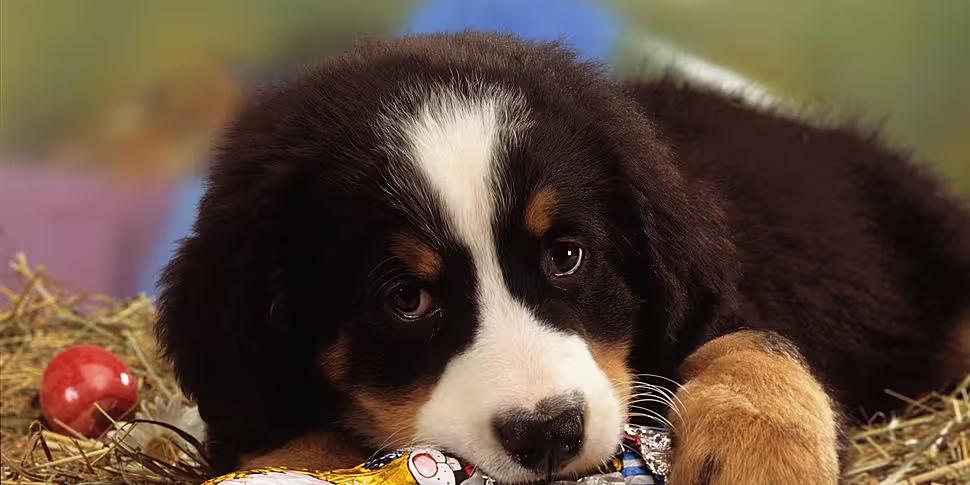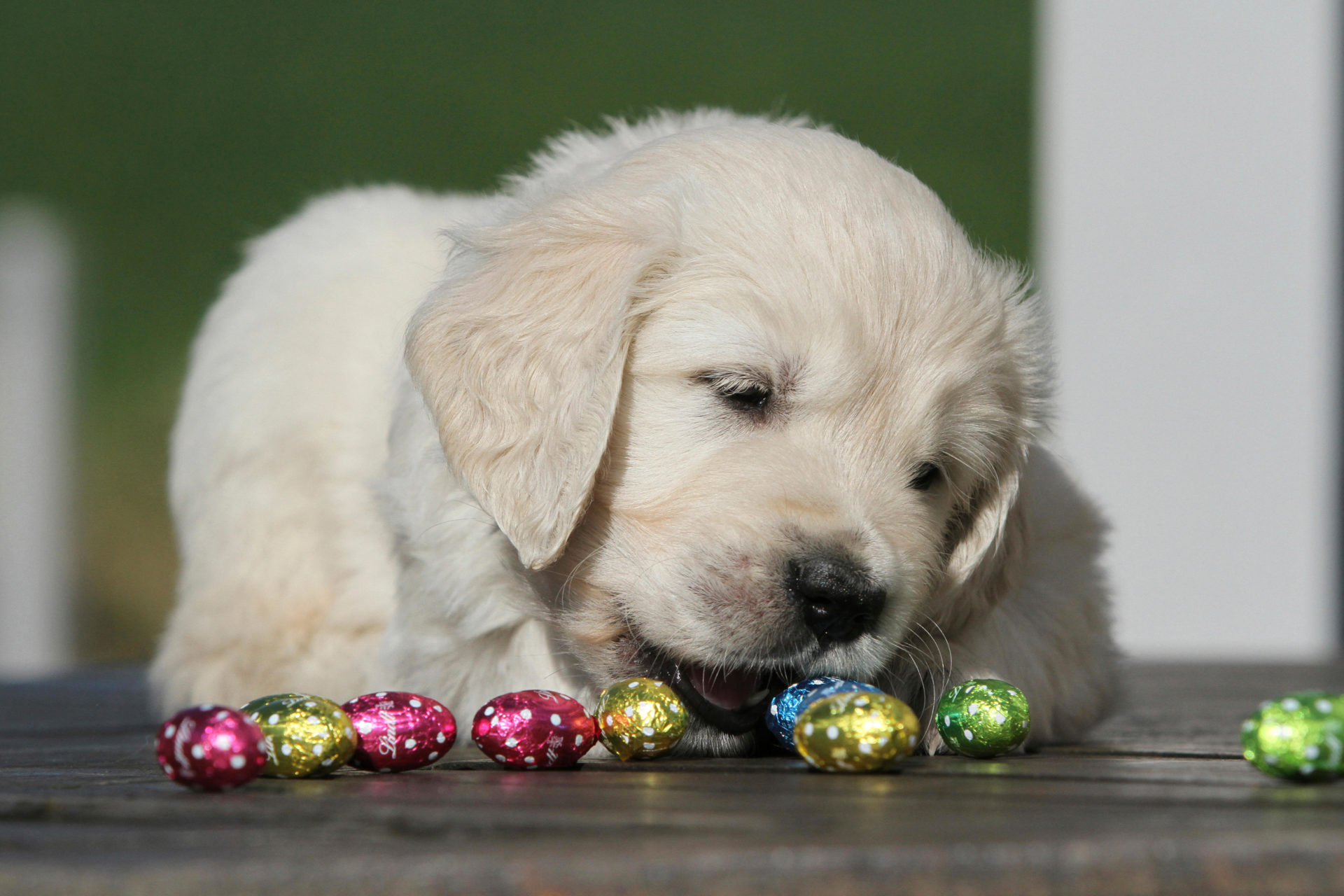Animal owners have been warned to be careful around Easter treats, as they can be a huge temptation for pets.
For dogs in particular, chocolate is well-known to be toxic.
But with many fuzzy friends being skilled beggars and scavengers, how can you keep them safe?
Aoife O’Sullivan with Rockhall Vets in Limerick told Lunchtime Live that it’s best to be cautious and keep a close eye out for any symptoms.
“You can have some dogs who will just eat food because it’s food,” she said.
“If you have a dog like that, you just have to be very mindful when you’re doing an Easter egg hunt, maybe you do it in a different fashion.
“Or just make sure that your dog, maybe it’s in another room when you’re doing it and maybe just do simple things like count how many things you put out and how many things have been found.
“Keep notes and just be kind of overly cautious.”
Ms O’Sullivan warned that symptoms can start off small but may escalate depending on the size of the dog and the amount of toxins ingested.
“The toxic components of chocolate are theobromine and caffeine, these are stimulants” she said.
“So, the most common kind of symptoms that we would see would be those affecting the nervous system and the cardiovascular system.
“Often, we would probably start to see them off with maybe vomiting and diarrhoea and if the indigestion is quite significant then we would even see tremors.
“It can lead onto things like cardia arrhythmias and even seizures and coma and possibly death if it's very significant.”
Treatments
If your dog has eaten chocolate, Ms O’Sullivan said to call your vet, who will likely recommend to induce vomiting in the animal.
“That way any chocolate that they may have ingested will be expelled and that way then it can limit the toxin being absorbed into the gut system," she said.
“Sometimes if the toxin is in high quantities ingested, we will also recommend admitting them for IV fluids.
“Often for us as vets we will use what we call a chocolate toxicity calculator where we can input the details of the size of the dog, the type of chocolate they've ingested and actually how much they've ingested.”
Ms O’Sullivan said this allows vets to estimate a rough guide as to what types of symptoms can be expected.
Main image: Puppy eating chocolate Easter bunny. Image: Juniors Bildarchiv GmbH / Alamy.










